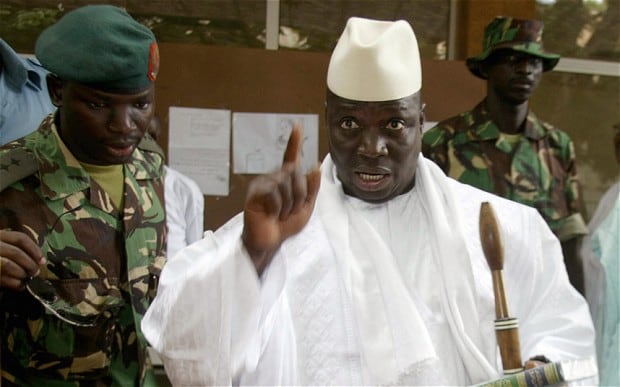
In 2009, Yahya Jammeh, together with hired “witch hunters” from Guinea Conakry, unleashed a reign of terror across The Gambia. Elderly men and women, many respected community leaders, were rounded up on false accusations of witchcraft.
These individuals were tortured, publicly humiliated, and forced to ingest dangerous concoctions that caused lasting physical harm. The attacks were not only brutal but systematic, executed by those in power with the full backing of the state.
Survivors Story
Ba Foday Jallow, an 86-year-old respected community imam from Essau, The Gambia, is one of the many victims of the witch-hunt. His story encapsulates the fear and injustice that thousands of Gambians endured.
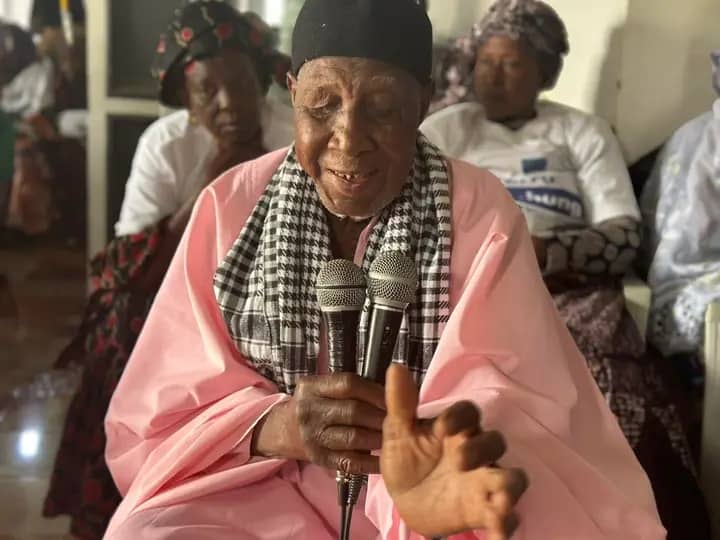
“I had just led the 5 p.m. prayers at the mosque when two armed soldiers approached me,” Jallow recalls. “They ordered me to board a bus. I was confused and asked why, but they gave no explanation. When I resisted, they shoved me and struck me with the butt of a gun, breaking my hand.”
Jallow’s experience, like that of countless other victims, is one of unimaginable suffering. He was taken without warning, given no reason for his detention, and subjected to brutal interrogation under the guise of hunting for witches. The physical pain from his torture is evident, and he underwent four surgeries to treat the fractures and injuries caused by the violent assault.
“Since that day, I live with unbearable pain,” Jallow says. His hand, permanently damaged by the assault, serves as a constant reminder of the violence he endured.
“They inserted a pipe in my stomach to help me urinate. I am still on medication. My suffering continues.”
However, the physical pain is only one part of his torment. The stigma of being accused of witchcraft, despite the absence of any evidence, leaves lasting emotional scars.
“People still see us as witches,” he says bitterly. “The damage done by Jammeh’s regime cannot be undone easily.”
For families like Jallow’s, the trauma is compounded by the uncertainty surrounding the fate of their loved ones. Victims were often taken without warning, without charges, and with no knowledge of when, or if, they would return. The survivors are left to cope with the fallout, enduring a stigma that follows them for the rest of their lives.
Another victim, Alkalo Baboucarr Faye of Barra, is overcome with emotion as he recalls his harrowing encounter with state security agents during the infamous witch-hunt.
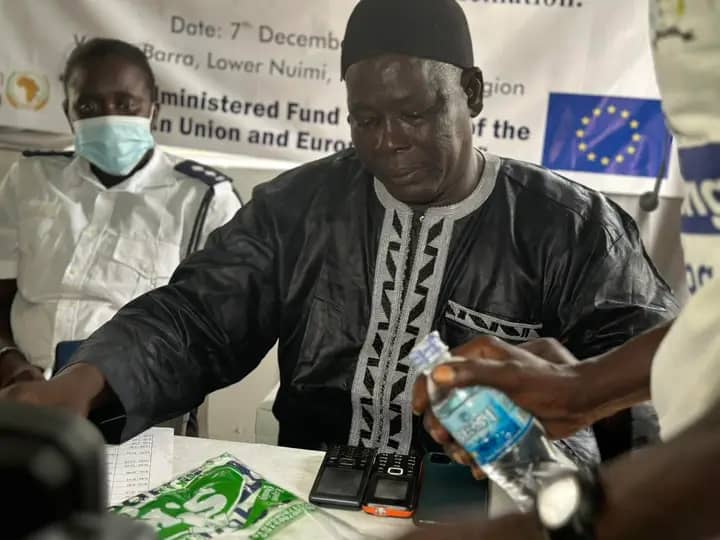
As he speaks, tears well up in his eyes. He describes the ordeal: “we endured so much when we were abducted and falsely accused of being witches. The mistreatment was unbearable, and many of us lost consciousness from the trauma.”
Alkalo Faye urges victims in the community to find peace. “I urge everyone to forgive one another,” he says, his voice filled with conviction. “We must place everything in the hands of God and move forward together.”
The Search for Justice
Despite the passage of time, the survivors of the witch-hunt continue to seek justice.
The Truth, Reconciliation, and Reparations Commission (TRRC) in The Gambia has documented the abuses, but for many victims, the scars of their past remain unhealed.
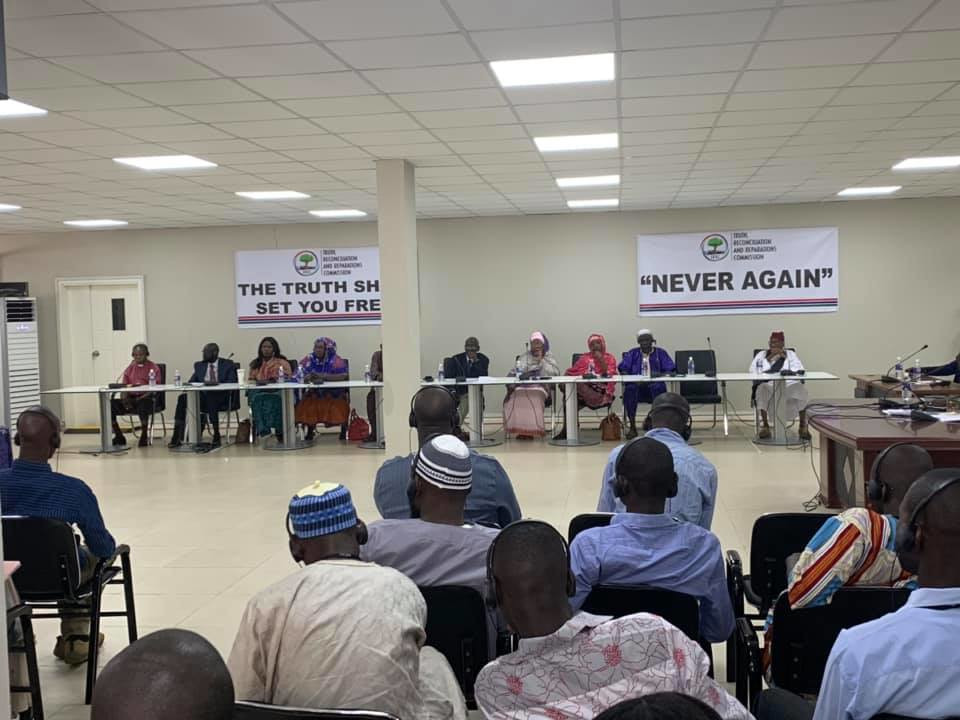
Jallow, like many others, hopes for a day when those responsible for the atrocities will be held accountable.
“We have been wronged, and we deserve justice,” Jallow says. “The pain we endured, and still carry no one should experience that. I want to see Jammeh and those who tortured us held accountable.”
Jallow’s hope for justice is shared by countless survivors who continue to live in the shadow of Jammeh’s cruelty. For many, the TRRC’s findings offer some validation, but the true justice they seek remains elusive.
Human Rights Activists’ Call for Action
Human rights activists continue to advocate for the survivors of the witch-hunt, pushing for reparations and justice.
They recognise that the road to healing is long, and that true reconciliation can only occur when the wounds of the past are addressed, and the perpetrators of these human rights violations are held accountable.
“Justice for the victims of the witch-hunt is not just about punishment for those responsible,” says human rights activist Amie Jatta.
“It’s about acknowledging the pain and suffering these individuals have endured. The survivors need more than just a public apology, they need real, tangible support and reparations for the crimes committed against them.”
Hope for Accountability
The recent decision by the Economic Community of West African States (ECOWAS) to establish a Special Tribunal to prosecute international crimes committed during Jammeh’s rule is seen by many as a step toward justice.

The tribunal, which involves both Gambian and international judges, focuses on bringing accountability for atrocities such as the witch-hunt.
For survivors like Jallow, this tribunal offers a glimmer of hope. “I want to see those who tortured us, those who falsely accused us, stand before the law,” he says. “Only then can we begin to heal.”
Human Rights Defender’s Perspective
Madi Jobarteh, a prominent human rights activist and founder of Edward Francis Small for Rights and Justice, criticises the Gambian government for its weak commitment to transitional justice.
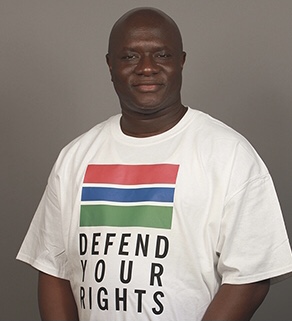
“The government began the transitional justice process in 2017, establishing the TRRC, NHRC, and CRC, and enacting progressive laws like the Access to Information Act. However, these reforms have failed to deliver significant progress. The lack of a new constitution is a major setback, and corruption remains a critical issue.”
Madi highlights the limited accountability for crimes committed during Yahya Jammeh’s regime: “apart from the conviction of nine NIA officials for Solo Sandeng’s death and Yankuba Touray for Koro Ceesay’s murder, little has been achieved.
Perpetrators of atrocities, including witch-hunt abuses, the massacre of students, and other crimes—remain free. Victims of witch-hunts, who were humiliated, poisoned, and assaulted, still wait for justice.”
He commends the TRRC for documenting Jammeh-era atrocities, including torture, sexual violence, enforced disappearances, and witch-hunts, but condemns the government’s lack of action on its recommendations.
“Victims deserve full involvement in the justice process. The government must ensure transparency and inclusivity, while civil society organizations must empower victims and hold the government accountable.”
Human Rights Lawyer’s View
Reed Brody, the renowned human rights lawyer known for his efforts to hold dictators accountable, believes that under pressure from ECOWAS, Equatorial Guinea is struggling to reject an extradition request for former Gambian president Yahya Jammeh.
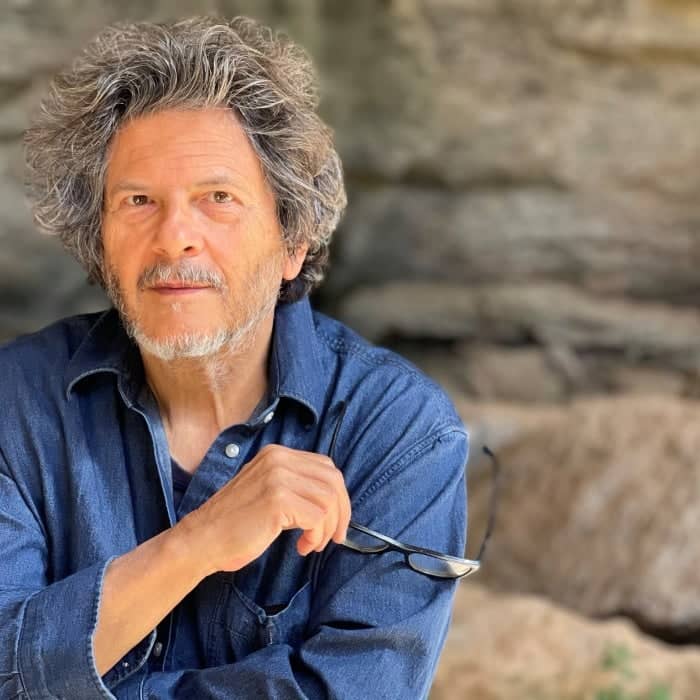
In a recent interview with The Standard, Brody stated that the creation of a hybrid court, backed by ECOWAS and other affected West African nations, significantly increases political pressure on Equatorial Guinea.
Brody emphasised that while Equatorial Guinea has pledged to protect Jammeh, the court, supported by multiple countries affected by his regime, makes it difficult for President Teodoro Obiang to refuse an extradition request.
“When a court speaking not just for The Gambia, but for all of West Africa, requests Jammeh’s transfer, it is hard even for Obiang to refuse,” Brody said.
He also pointed out that both The Gambia and Equatorial Guinea have ratified the UN Convention Against Torture, which provides a legal framework for extradition in cases involving torture.
“It is not The Gambia making the request, but the special tribunal, which has its own international legal standing,” Brody added.
Brody remains hopeful that international support for the tribunal will ensure justice is served for the victims of Jammeh’s regime.
By Adama Makasuba










Recent Comments